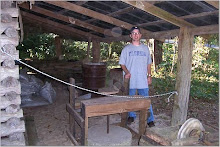In his book Touch and Go: A Memoir Studs Terkel takes the reader through his life. He starts with his childhood and then tells of his experiences as a law student during the Great Depression. He tells how he started going to the theater at a young age which leads to him becoming an actor himself. He tells about how he not only acted in the theater but also started acting on the radio as well. He tells the reader about his life as a disc jockey after World War II and how he became involved with progressive politics during the McCarthy era. Terkel describes his later life as having a career as an interviewer and oral historian. This is where the heart of the book is in my opinion. Touch and Go is a great book that gives a great insight into life of Stud Terkel. I am not completely sure what an ideal Oral Historian is but having read this book I would say Stud Terkel is an ideal Oral Historian. He had a great sense of social justice and commitment to capture on his every interview he did. Terkel made Oral History into an art form. He had a true appreciation for what he was doing and when interviewing someone he made sure the interviewee felt wanted and needed same time. He wanted them to know he wanted to interview and recorded them. Terkel wanted to record the voices of people who otherwise would not be heard without him.
Michael Frisch book A Shared Authority: Essays on the Craft and Meaning of Oral and Public History was much more academic. This book was a collection of thirteen of Frisch essays. The essays are mostly evaluations of Public History projects in which Frisch argues that the collection in Public History projects go far beyond just Public History because they cover areas of importance in all parts of history and society. Public History collections provide not only information to the audiences that go to view the collections by supplying visual evidence and audio evidence but also show the relationship between the collection and audience.
These two books take vastly different approaches but key on most of the same issues. These two authors were concerned with the audience and the audience’s involvement within Public History collections. Both Terkel and Frisch cover the attempts to actively engage the audience in order to involve them in remembering the past. Terkel’s book was much easier for me to read and much more entertaining. Frisch book like I said earlier was much more academic but provide a great deal of information on the importance of Public History. I enjoyed both of these books very much but having read Terkel I wish I could have gone back in time and read Frisch book. The reason is Frisch became uninteresting to me and I had a hard time trying to finish it.
The Final Frontier?
17 years ago

No comments:
Post a Comment